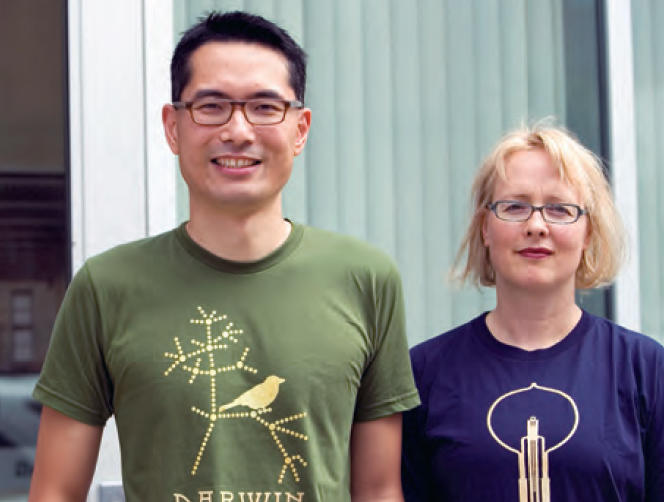New York City officials have been trying for years to establish this city as a biotechnology hub on par with Boston or San Francisco.
One challenge is that scientists with ideas for new cancer drugs, surgical devices, and other lifesaving inventions have trouble finding commercial laboratory space that is affordable.
“To outfit a lab in Manhattan, you’re looking at plunking down $100,000 or more,” says Samuel Sia, a Columbia associate professor of biomedical engineering. “A midsized startup that already has venture-capital backing can handle that. But smaller players get squeezed out. A lot of them end up leaving New York or dropping their ideas altogether.”
This fall, the city will take a big step in the right direction when Sia opens Harlem Biospace, a business incubator that he says is the first in Manhattan for early-stage biotech companies. Located on the ground floor of the Sweets Building, an old confectionary research facility at 423 West 127th Street, Harlem Biospace will provide up to two dozen startups an office desk, a wet-lab bench shared with one other tenant, and access to cell-culture hoods, bench-top centrifuges, autoclaves, chemical-fume vents, microscopes, and other costly equipment. Monthly rent is $995, with Wi-Fi and all utilities covered.
“It’s completely set up,” says Sia, who owns and operates the enterprise with his wife, Christine Kovich, who previously worked in finance. “You can show up and start working. If your idea pans out, we envision that you’ll probably graduate to a larger lab space within two or three years. If not, your upfront investment will have been minimal.”
The idea for Harlem Biospace came about last fall, when Sia approached the New York City Economic Development Corporation (NYCEDC) for advice about where he could find a cheap commercial lab to rent. Sia already had a track record as an entrepreneur: in 2004, when he was twenty-eight years old, he founded a company that developed a portable diagnostic tool to detect prostate cancer with just a finger prick. He managed to create that device, which is the size and shape of a credit card, while bouncing between several commercial labs — including one as far away as Switzerland, where especially cheap laboratory space was available. He eventually sold the device to the international health-care company Opko. This time, however, Sia was determined to situate his new company in Manhattan.
“I wanted to be near the investment community,” says Sia, who is now developing a handheld device that can detect a wider variety of health problems. “I also wanted to be close to my academic lab at Columbia.”
When NYCEDC officials told Sia that no affordable facilities existed in the city for fledgling biotech companies, he offered his vision for one: why not create a communal space where people can exchange ideas, swap professional contacts, and barter lab skills? Why not give them shared access to equipment to keep costs down? Why not sweeten the deal by offering one-on-one mentoring and classes on starting your own business?
“The more we discussed it, the clearer it became that this was viable and necessary,” he says.
In June, the NYCEDC announced that it was kicking in $626,000 to support the launch of Harlem Biospace. Sia and Kovich, who recently signed a ten-year lease on their 2,300-squarefoot space, put up a six-figure sum of their own using Sia’s payout from the sale of his previous company.
“We’re in this for the long haul,” says Sia, whose latest biotech startup, Junco Labs, has claimed the first spot at Harlem Biospace. “We believe there is no industry sector more in need of innovation than health and biotech. And we want to create an entire community of talented scientists who are similarly devoted to turning their ideas into technologies that improve people’s lives.”



